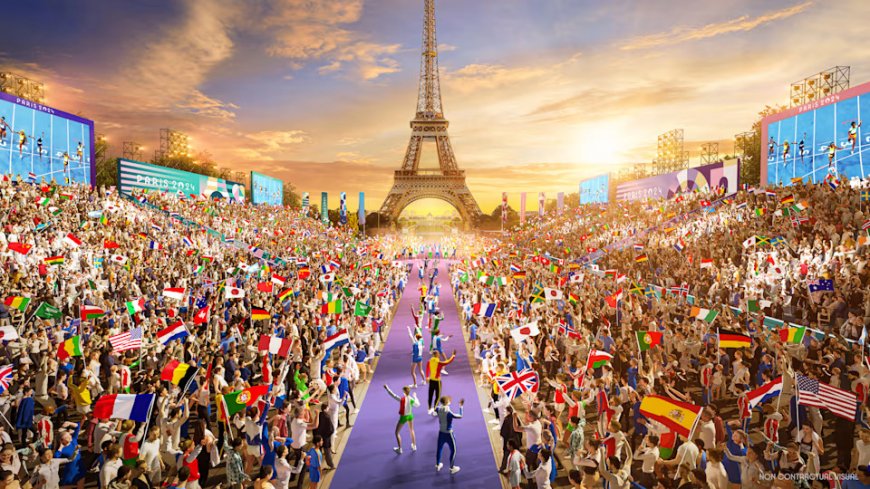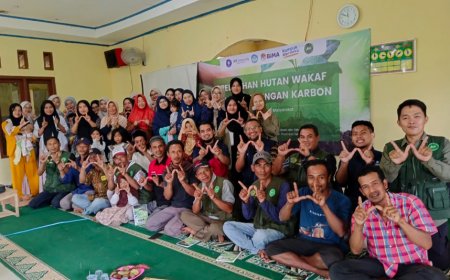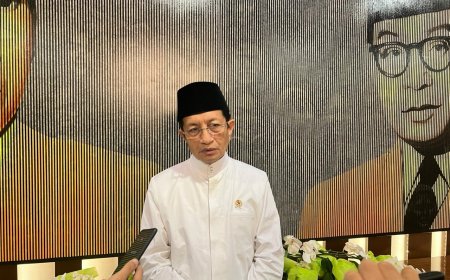How the Paris 2024 Olympics stay cool even without air conditioning
Organizers plan to use a water cooling system under the Athletes' Village.

To reduce the carbon footprint, all athletes and officials of the Paris 2024 Olympic Games will not be facilitated with air conditioning (AC) during stay in Athletes Village. However, organizers claim that the 33rd Olympics will use an underground cooling system to keep their accomodation stay cool during the Games even without air conditioning.
Organizers plan to use a water cooling system under the Athletes Village. The same technology has previously helped the Louvre Museum cope with record-breaking heat in Paris last year, AP reported.
With the technology in place, temperatures are expected to remain under control for Olympic and Paralympic athletes living there. The decision is part of the organizing committee's goal to reduce the carbon footprint of the Paris Olympics by half. Thus, this year's Olympics will be the most environmentally friendly event by installing special technologies that use natural sources to keep everyone cool, even during heat waves.
“I want the Paris Olympics to be exemplary from an environmental point of view,” Paris Mayor Anne Hidalgo said.
Anne is determined to tackle climate change with an ambitious action plan that aims to drastically reduce greenhouse gas emissions and make the city dubbed the City of Light carbon neutral by 2050.
Compared with conventional projects, the carbon impact will be reduced by up to 45% for athletes' villages during the construction phase and throughout the Olympic cycle, she said.
During July and September 2024, the village of Etlet north of Paris will play host to 15,600 athletes and sports officials during the Olympics and 9,000 athletes and their support teams during the Paralympics. After the games, the 50-hectare (125 acre) site next to the River Seine in the popular district of Seine-Saint-Denis will be a zero-carbon and eco-friendly residential and commercial neighbourhood with 6,000 new residents - the first of which will move in as soon as 2025.
To anticipate the hot weather, organizers have been studying the heat wave block by block in the Athletes Village. They have simulated conditions in parts of the accommodation most exposed to sunlight and have tested the effectiveness of cooling systems with the aim of keeping indoor temperatures between 23 and 26 degrees Celsius (73 and 79 degrees Fahrenheit).
The geothermal energy system will ensure that temperatures in athletes' apartments in the suburb of Seine-Saint-Denis do not rise above 26 degrees Celsius (79 degrees Fahrenheit) at night, including during potential heat waves, said Laurent Michaud, director of the Olympic and Paralympic Village.
She said that organizers had conducted tests in rooms located on the highest floor of the residence and facing south and exposed to direct sunlight on two sides. They also took into account the direction of the winds in the region and the temperature of the water in the Seine River. They have been working with France's national weather agency to develop temperature forecasts.
“Even though outdoor temperatures reached 41 degrees Celsius (106 degrees Fahrenheit), we had temperatures of 28 degrees (82 degrees Fahrenheit) in most of these rooms,” Michaud told The Associated Press, detailing the results of the heat wave simulations. “In the other room, we obviously had a lower temperature.”
In addition to underfloor coolers, insulation built into the building will allow occupants to keep cool temperatures acquired at night throughout the day, Michaud said. To keep cool inside, the athletes should follow a few basic rules, he added, including making sure the window blinds are closed during the day.
Laurent Monnet, who is in charge of the green transition at the City Hall of Saint-Denis, the northern suburb of Paris where the main Olympic Village will be located, said that all rooms should be 6 degrees Celsius (11 degrees Fahrenheit) cooler than the temperature outside, with no air conditioning units. Although some potential Olympic participants have expressed their concerns about the lack of air conditioning, Monnet said athletes should adapt and help contribute to the fight against climate change.
“We need the athletes to set an example when they use those buildings,” Monnet said. “We can build the nicest village we want, but the use that will be made of it will cost us our carbon footprint.”
This Olympic committee plan received a positive response from some athletes. Eliud Kipchoge, a two-time Olympic champion and marathon world record holder, backed the Paris plan. The Kenyan runner is one of the most vocal advocates in the sport and has repeatedly voiced climate change and the impact of global warming.“This is a good thought, because we all need to reduce carbon,” Kipchoge said in an interview with the AP.
He called on athletes to help combat climate change by reducing their carbon impact during competition, training and their lives in general because “we will all experience the same scenario.” Only, what the committee want is not always in line with the wishes of the contingent of participants. Sarah Hirshland, CEO of the U.S. Olympic and Paralympic Committee (USOPC), confirmed that the teams will supply air conditioning units for their athletes.
“In our conversations with athletes, it's a very high priority and something that athletes think is an important component of their performance ability, and the predictability and consistency of what they're used to doing,” she told journalists in a briefing last week.
Despite the decision, Hirshland said that the USOPC respected the efforts made by Paris 2024 organizers to improve the sustainability of the event. Athletes from Britain, Australia, Denmark, and Italy have also reportedly installed their own air conditioning systems at the Olympic Village.
Paris Mayor Anne Hidalgo told Reuters that countries considering bringing in air conditioners of their own should “trust the science.”







